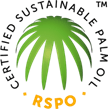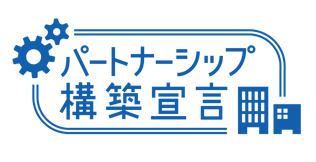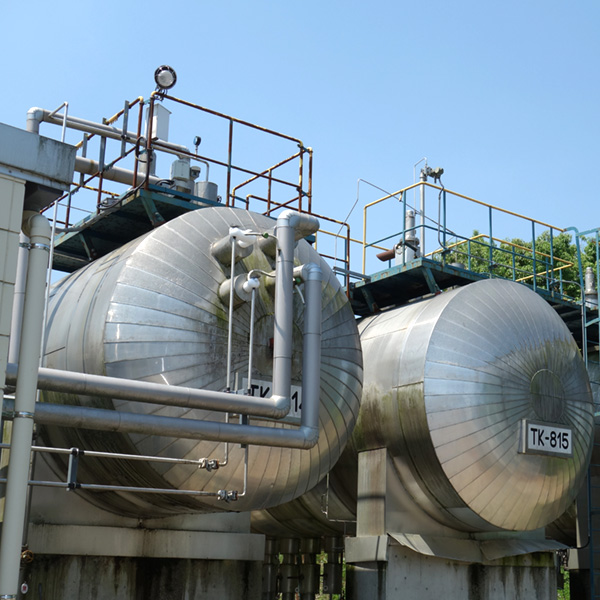
Sustainability
Strengthening of Nissan Group's business base
- HOME >
- Sustainability >
- Strengthening of Nissan Group's business base >
- Promotion of Sustainable Procurement
Promotion of Sustainable Procurement
Policy/Philosophy
In recent years, companies are expected to play a role in resolving various social issues including environmental issues such as climate change and resource depletion, as well as human rights issues, issues related to corporate ethics and compliance. They are also expected to contribute to the construction and development of a sustainable society. Based on this recognition, we establish “Purchase Policy” and “Responsible Minerals Procurement Policy” regarding the procurement of raw materials and materials, and are engaged in purchasing activities.
However, we recognize that our own efforts alone are not sufficient to achieve sustainable development of society, and that it is essential to work throughout the entire supply chain, in other words, to gain the understanding and cooperation of our business partners, who are our important partners. For this reason, we have compiled the matters that we would like our business partners to work on together into the “Nissan Chemical Corporation Sustainable Procurement Guideline.” We share this guideline with our business partners and ask them to comply with this guideline.
We will continue to review our purchase policy and sustainable procurement guidelines as appropriate in light of social demands for sustainable procurement, and fulfill our social responsibility in cooperation with our business partners.
Purchase Policy
We procure and purchase raw materials and materials in accordance with our Course of Action.
- Compliance with laws, regulations, and social norms
We promote sound procurement and purchase activities by observing all relevant laws, regulations, social norms, and internal regulations, as well as corporate ethics. - Fair, equitable, transparent trades
We continue to create opportunities for business with new suppliers, without adhering to past purchases or the corporate group, thereby ensuring fair, equitable, transparent trades. - Procurement and purchase based on economic rationality
We undertake procurement and purchase that are optimal for us based on a comprehensive evaluation of quality, price, stable supply, technology development capabilities, stable management and other factors. - Consideration for the global environment
To achieve a sustainable society, we strive to remain conscious of the protection of the global environment in our procurement and purchase activities. - Establishment of partnership
Based on our fundamental recognition that all of our business partners are essential for executing businesses, we establish relationships of mutual trust with them in our efforts to achieve further development. We will also work on the following themes with our business partners in our efforts to fulfill our corporate social responsibility.
1) Compliance with laws, regulations, social norms and corporate ethics
2) Ensure safety and protecting the environment
3) Respect human rights and giving consideration to the work environment
Established July 2017
Responsible Minerals Procurement Policy
It is feared that the profits from mining and trading gold, tin, tantalum, tungsten and cobalt (hereinafter, minerals) in conflict areas such as the Democratic Republic of the Congo and its surrounding countries and CAHRAs* (hereafter, collectively referred to as target areas) have become a major source of funds for organizations involved in risks and fraudulent, such as conflict, infringement of human rights such as child labor and forced labor, environmental destruction, and corruption.
We will not use any minerals from target areas (hereinafter, conflict minerals) and materials including conflict minerals to avoid participating in conflict and inhumane activities. In the unlikely event that the use of conflict minerals is discovered, we will promptly take remedial measures. We ask our business partners to agree with this policy and to cooperate so that conflict minerals are not used in the raw materials used in our products.
- Conflict-Affected and High-Risk Areas covered by EU Conflict Minerals Regulation
Refer to https://www.cahraslist.net/cahras
Established March 2022
Nissan Chemical Corporation Sustainable Procurement Guideline
<Items>
- 1.Human Rights and Labor
-
- (1-1) Prohibition of Forced Labor
- (1-2) Prohibition of Child Labor and Respect for the Rights of Young Workers
- (1-3) Prohibition of Inhumane Treatment
- (1-4) Prohibition of Discrimination
- (1-5) Adequate Wages and Allowances
- (1-6) Appropriate Management of Working Hours
- (1-7) Freedom of Association and Right to Collective Bargaining
- 2.Environmental Considerations
-
- (2-1) Environmental Permits and Reports
- (2-2) Environmental Policy
- (2-3) Chemical Substances Management
- (2-4) Management of Chemical Substances Contained in Products
- (2-5) Reduction of Energy Consumption and Greenhouse Gas Emissions
- (2-6) Effective Utilization of Resources and Waste Management
- (2-7) Biodiversity Conservation
- (2-8) Water Management
- (2-9) Air Emissions
- 3.Health and Safety
-
- (3-1) Occupational Safety
- (3-2) Machine Safeguarding
- (3-3) Industrial Hygiene
- (3-4) Physically Demanding Work
- (3-5) Occupational Accident and Illness
- (3-6) Response for Emergency
- (3-7) Health and Safety at Facilities
- (3-8) Employee Health Management
- (3-9) Health and Safety Communication
- 4.Ethics
-
- (4-1) Formulation and Dissemination of the Ethics Code and the Action Guideline
- (4-2) Prevention of Corruption
- (4-3) Prohibition of Inappropriate Provision and Improper Benefit
- (4-4) Prohibition of Abuse of Dominant Bargaining Position
- (4-5) Prohibition of Anticompetitive Practices
- (4-6) Development of Whistle-blowing Program
- (4-7) Protection of Personal Information
- (4-8) Prevention of Leak of Confidential Information
- (4-9) Respect for Intellectual Property Rights
- (4-10) Supplier Management
- (4-11) Responsible Minerals Procurement
- (4-12) Fair Information Disclosure
- 5.Building Risk Management System
-
- (5-1) Development of a Business Continuity Plan (BCP)
- (5-2) Establishment of Emergency Networks
- (5-3) Secure of Multiple Production Sites and Alternative Production Sites
- (5-4) Listing of Suppliers and Manufacturers
- (5-5) Defense from Cyber Attack
- 6.Product Safety and Quality
-
- (6-1) Ensure of Product Safety
- (6-2) Quality Management
- (6-3) Provision of Accurate Information on Products and Services
- (6-4) Response to Accidents and Deficiencies of Quality
System
Our group has established the Sustainability Promotion Committee, whose secretariat office is Sustainability Promotion Group under Sustainability Promotion & IR Department, as an organization to promote the activities for sustainability-related initiatives, including sustainable procurement. The committee is held twice a year. The long- and mid-term plan and annual plan related to activities for our Group's sustainability initiatives, evaluation of results of activities, and issues to be improved and examined based on the evaluation etc. are approved at the Board of Directors meeting after discussion at the committee.
Activities
Sustainability Survey for Business Partners
Since FY2017, we have been periodically asking our business partners (existing and new suppliers, and contractors of important raw materials, intermediates, and products) to respond to the “Sustainable Procurement Self-Check Sheet (SAQ)“ with the aim of collaborating with them in sustainability activities. In addition, starting in FY2020, we have been sharing the “Nissan Chemical Sustainable Procurement Guidelines” with our business partners, which outlines the items we would like them to work on together with us, and ask them to comply with this guideline.
The contents of the SAQ and procurement guidelines are regularly reviewed to reflect changes in societal demands regarding ESG. Taking these changes into account, we have been conducting new surveys using the latest SAQ and procurement guidelines since FY2024. In the latest SAQ, we ask business partners to respond about their GHG emissions and the status of setting mid- to long-term targets for GHG emission reduction as part of efforts to reduce the environmental impact of supply chains.
Furthermore, since FY2023, we have started providing feedback to business partners who responded to the survey on the results of the analysis of each item. By comparing their own score with the average score of other companies for each item, business partners can reconfirm the strengths and weaknesses of their own activities and use the results as a reference for continuous improve their sustainability activities. In addition, we began holding briefing for our business partners in FY2024. At this briefing, we not only explain our initiatives but also introduce examples to help participants gain a deeper understanding of human rights and environmental issues, which are particularly important topics.
As a result of this survey, we did not detect major risks in terms of environmental, social, and governance. Based on this survey, we will continue to prioritize business with business partners that meet our standards, as well as carry out awareness and improvement activities for our business partners.
Main item in Sustainability questionnaire
| Item | Content |
|---|---|
| 1.Human Rights and Labor | Prohibition of forced or compulsory labor, Prohibition of child labor and respect for the rights of young workers, Prohibition of inhumane treatment, Non-discrimination, Appropriate wages, Adequate hours of work, and Freedom of Association and Right to Collective Bargaining |
| 2.Environment | Environmental policy, Chemical substances management, Resource and energy-saving, Reduction of GHG emissions, Waste management, Biodiversity conservation, Water resources conservation, and Reduction of air emissions |
| 3.Health and Safety | Health and safety at workplaces and facilities, Consideration for physically impact work, Response of occupational accident and illness, Emergency response, Health care, Health and Safety Communication |
| 4.Ethic | Prevention of corruption, Prohibition of abuse of dominant bargaining position, Prohibition of improper offering and receipt of profit, Prohibition of restrictive competition, Consultation hotline, Protection of personal information, Prevention of leak of confidential information, Respect for intellectual property rights, and Responsible Minerals Procurement |
| 5.Building of Crisis Management Systems | Formulation of business continuity plans, Understanding of information on business partners and production bases, and Information security |
| 6.Product Safety and Quality | Product safety, Quality management, Accurate information on Products and Services and Response to complaints |
On-site Audits of Business Partners
We visit our business partners in Japan and overseas to conduct on-site audits to check sustainability activity initiatives in detail, with a particular focus on activities related to environment, health, and safety (EHS). We promote sustainable procurement by requesting suppliers that need to take corrective actions to submit an "improvement plan" and confirming the status of improvement.
In regard to pharmaceutical product subcontractors, we carry out EHS assessments based on the PSCI (Pharmaceutical Supply Chain Initiative) and ISO14001. Assessments include questions related to laws and regulations, the environment, health and safety, human rights, labor, and anti-corruption. We send out EHS assessment questionnaires and conduct audits based on the responses. In the on-site audit, we confirm the actual and potential risks on site focusing on the risks identified during an EHS assessment.
As results of the on-site audits, no significant compliance violation of our suppliers and business partners has been identified.
Efforts for Responsible Minerals Procurement
We have incorporated our commitment to responsible mineral procurement into the “Nissan Chemical Corporation Sustainable Procurement Guidelines” and verified the efforts of our suppliers through surveys using the SAQ. In addition, we are asking our suppliers who purchase relevant minerals to submit a certificate of non-use of minerals mined in conflict or high-risk areas, thereby promoting our efforts to avoid purchasing and using such minerals. In the event that the use of conflict minerals is discovered, we will promptly take remedial measures.
We will continue to recognize our role and strive to contribute to international efforts for responsible mineral procurement.
Procurement for Palm Oil
We are a participant in RSPO (Roundtable on Sustainable Palm Oil) and acquired RSPO Distributor License to procure palm oil as a raw material for highly branched saturated alcohol and highly fatty acid products (product name: FINEOXOCOL®).
What is RSPO ?
RSPO was established as an international NPO in 2004 by the World Wildlife Organization (WWF) and other relevant organizations to promote the production and use of sustainable palm oil. This NPO, which is operated under the cooperation of 7 sectors (palm oil producers, processors or traders, consumer goods manufacturers, retailers, banks/investors, and environmental and social NGOs), has two types of certification systems: “P&C certification※1” for farming and oil expression plants, and “SCCS certification※2” for supply chains involving palm oil produced by P&C palm oil. RSPO grants Distributor License to the company who uses P&C and SCCS palm oil only.

- 1 P&C Certification: Certification issued to farms and oil expression plants that are deemed to be producing sustainably in compliance with the principles and standards established by RSPO.
- 2 SCCS Certification: Certification issued to corporates and organizations that are deemed to be engaged in sustainable manufacturing, processing and distribution that meet the requirements established by RSPO and use P&C certified palm oil.
Participation in Initiatives
Global Compact Network Japan Supply Chain Working Group
We support the United Nations Global Compact (UNGC) and have been a member of the Global Compact Network Japan (GCNJ, the local network of the UNGC in Japan) since FY2018, participating in various GCNJ working groups. The Supply Chain Working Group within that group is working with other participating companies to improve sustainable procurement in the supply chain. We have participated in this Working Group since FY2024.
Declaration of Partnership Building
We agreed with the concept of "Declaration of Partnership Building" established by the Council on Promoting Partnership Building for Cultivating the Future, which consists of the chairman of Keidanren (the Japan Business Federation), chairman of the Japan Chamber of Commerce and Industry (JCCI), president of Rengo (the Japanese Trade Union Confederation), and relevant ministers as members, and published “Partnership Building Declaration” in April 2023. We aim to build new partnerships by establishing mutually beneficial relationships with business partners and value-creating companies involved in the supply chain.






